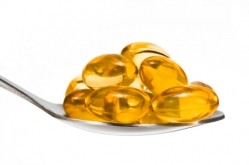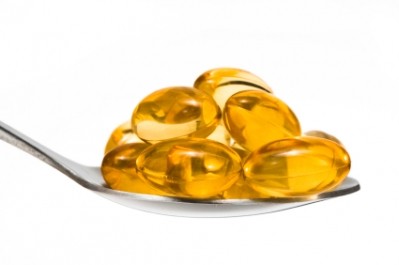Study shows almost no college football players get enough omega-3s

The research was presented in poster form at the recent meeting of the American College of Sports Medicine Conference in Minneapolis, MN. The study was conducted by a team at Texas Christian University.
Low level mirrors population at large
The researchers measured the omega-3 index of NCAA Division 1 college football players. They drew blood samples from 112 players, and found that only one player had an index of 8%, which is regarded as the base level offering the greatest cardioprotective and potentially neuroprotective benefits.
The mean omega 3 index for the players was 4.35%. As such, the results of the survey were unsurprising, as this level is representative of the US population as a whole.
“All but one of those athletes was deficient and we were pretty sure that was going to be true across the board,” said Chelsea Burkart, president of the Collegiate and Professional Sports Dietitians Association.
“But I would tell you, too, that all of my family and friends are deficient in omega-3s,” Burkart told NutraIngredients-USA.
Recent research has supported a role of omega-3s in ameliorating the effects of traumatic brain injuries. In a rat study done in 2011, researchers concluded that, “Dietary supplementation with DHA increases serum levels and, if given prior to traumatic brain injury, reduces the injury response, as measured by axonal injury counts, markers for cellular injury and apoptosis, and memory assessment by water maze testing.”
This has led to the use of the products in some professional sports leagues, such as the NFL, NBA and NHL. And researcher Kevin Tipton told NutraIngredients-USA at the GOED Exchange meeting earlier this year in Seattle that many rugby teams in the UK have latched onto the research and are recommending high doses of fish oils for their players.
Do athletes need more?
The football players represented a unique study population in that they are both much more heavily muscled as well has exhibiting higher activity levels than the general population. The average weight of the players was 101 kg and the average height was 182 cm, equating to a BMI of 30.5, which for an average individual would be borderline obese. But Burkart said there is no evidence that that matters much when it comes to omega-3s.
“These athletes are eating more than the average person, and so are taking in more vitamins and minerals than the average person. Do they need more? And as far as omega-3s are concerned, are they metabolizing more or excreting more? All of that can be very difficult to figure out,” she said.
Fish oils not on approved list
While the base results of the study were not a surprise, what does come as a surprise is that by rule college teams are not allowed to give their players omega-3 supplements. Burkart said certain supplements, such as vitamin and mineral supplements, carbohydrate supplements and protein supplements are allowed, but in general, the NCAA is a food first organization.
Burkart echoed the reservations many dietitians offer when contemplating whether to recommend supplementation for their clients. She said these issues have kept the NCAA from approving any but a handful of supplements for athletes.
“Part of the reason is that the entire supplement industry is completely unregulated,” Burkart said. “You have to prove that a drug is safe and effective before you put it on the market, but you don’t have to prove that for a supplement.”
“But there are no rules about how much of a whole food you could give to an athlete. You could feed them as much salmon as you had the budget for and they had the taste for, for example,” she said.
Food first, except when that doesn’t work
While Burkart remains unconvinced about the quality and efficacy of most supplements, she said the current situation is clearly not working.
“These are Division I athletes, so they all have access to training tables. They have some of the best food and the best nutrition advice that is available. And they are still not getting enough omega-3s,” she said.
Burkart said that there is nothing that prevents an NCAA athlete from purchasing and using an omega-3 supplement on their own. She said there could be a role for such supplementation, if the products were backed by suitable third party testing and certification. If a product could be proven to meet label claim and to be free of contamination—a big concern for the NCAA—it could be a low risk add on for the athletes’ nutritional regimens that potentially could provide some benefit, she said.
“If we had a product that was tested by a third party, well then, we know we wouldn’t be doing any harm and we potentially could be doing some good,” she said.
















